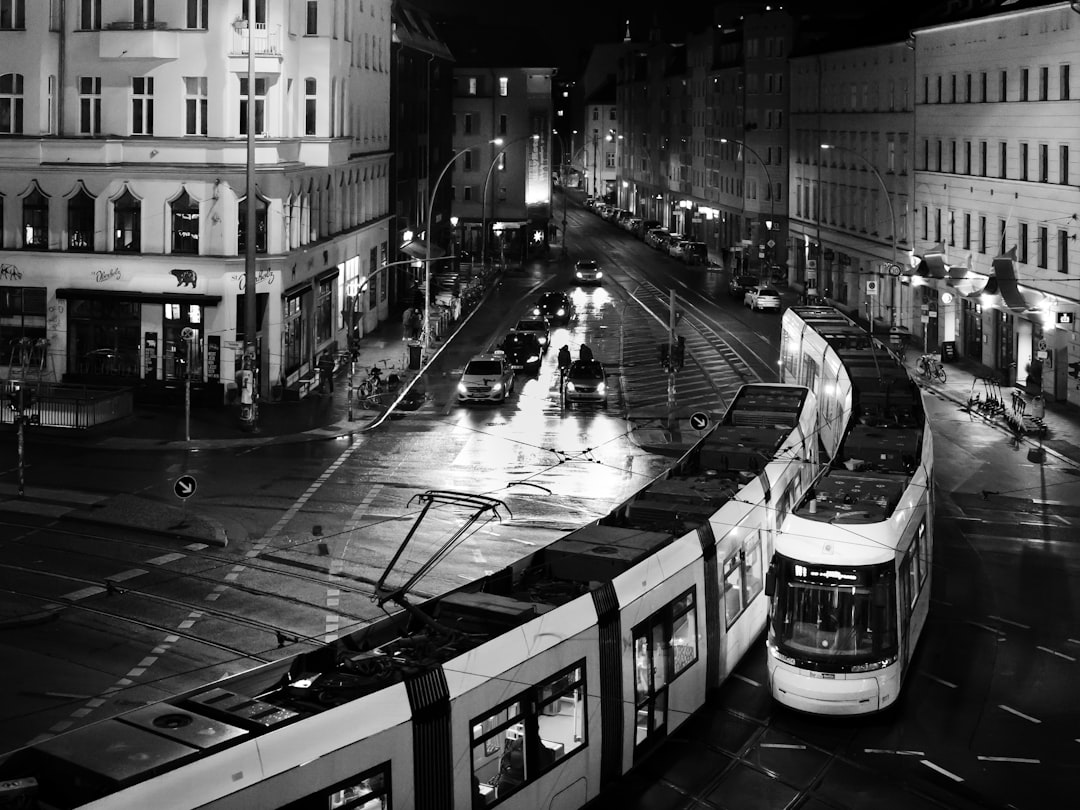The New Face of Antisemitism
“In the old days, the police knew whom to watch. Now it could come from anywhere.”
Please consider supporting our mission to help everyone better understand and become smarter about the Jewish world. A gift of any amount helps keep our platform free and zero-advertising for all.
This is a guest essay written by Jörg Luyken, who writes The German Review. You can also listen to the podcast version of this essay on Apple Podcasts, Google Podcasts, and Spotify.
Two Fridays ago, a young Jewish man had just left a bar on Rosenthaler Platz in central Berlin, when someone approached him and started to heckle him about his views on Israel.
The aggressor then punched him twice in quick succession, knocking him over. When his victim was on the floor, he kicked him in the head and fled.
Five days later, the Jewish student is still in hospital waiting on an operation for the skull fractures he suffered.
This brutal assault tells us a lot about the state of antisemitism in Germany today. In particular, its aftermath shows how, in some quarters, it is once again acceptable to twist the story to pin the blame on the Jew.
Jewish student Lahav Shapira knew his attacker; they had come face-to-face on opposite sides of protests over Gaza at Berlin’s Free University. Shapira, 30, has helped organize marches in solidarity with Israeli hostages taken by Hamas.
His attacker, a 23-year-old from the Middle East, was one of several activists who occupied a lecture hall at the university in December calling for “an end to the genocide.” The activists blocked several Jewish students from entering the hall due to “their support for Israel.” Shapira was among them.
The fact that Shapira recognized his attacker, who had been in the same bar as him moments before the assault, meant the police could quickly apprehend him. The case has now been taken over by a special unit for political crimes. Whether it was just coincidence that the man was in the same bar as Shapira, or whether he planned his crime more methodically will come out in due course.
This is the worst assault yet on a Jew in Germany since the Hamas massacres on October 7th led to a war between Israel and the Palestinian terror group. But for Jewish students, it hardly comes as a surprise.
“What we have been warning about for months has now happened,” said Hanna Veiler, head of the union of Jewish students. “It has become normal for us to check on our way home to make sure we are not being followed. It has become normal to be prepared for antisemitic incidents at any time in everyday university life.”1
Pro-Palestinian activists on campus “only have to replace the word ‘Jew’ with ‘Zionist’ to feel that they have the moral authority to use violence,” she said, adding that the response from many such activists to the attack on Shapira has been that “Zionists deserve their suffering.”
This twisted logic is not just confined to university campuses; it has played out on social media too, where left-wing activists have gone into overdrive to try to turn Shapira into the oppressor.
On X (Twitter), anonymous accounts have been sharing a three-second video clip that shows Shapira shoving a pro-Palestinian protester. The footage stems from the lecture hall occupation in December. In the full footage of the scene, caught on a camera phone, Shapira can be seen trying to pin a picture of a Hamas hostage on the wall next to posters of the victims of Israeli bombings.
A heated exchange ensues in which the pro-Palestinian side try to stop him. At one point, Shapira shoves an activist who is barring his way. That shove is now being shared online as alleged proof that Shapira is violent; proof that he got what he deserved. To be clear, Berlin prosecutors say they have no evidence that Shapira instigated a fight two Fridays ago.
These days, you do not even have to be involved in activism to “get what you deserve.” Last month, a young Israeli couple were assaulted by two Arab men at a fast food restaurant in the Berlin neighborhood of Neukölln after they were overheard speaking Hebrew. One of the men tried to hit the young woman over the head with a chair.
These sorts of attacks are examples of a new type of antisemitism that Germans are still uncomfortable talking about: Hatred towards Jews in 2024 is more likely to come from Middle Eastern migrants than from neo-Nazis.
Officially, this is not true. In national police statistics, over 90 percent of antisemitic crime is still “assigned to the far-Right.” The problem is that the culprits for things like swastikas scrawled on a wall are hardly ever apprehended. And, when in doubt, police still tick the “far-Right” box in the crime report.
This practice has recently been criticized. A report commissioned by the Bundestag in 2017 found that the official statistics “distort the picture towards the Right” and “shouldn’t be mistaken for a representation of reality.”
Indeed, other research paints a very different picture: A 2017 study conducted by the University of Bielefeld among victims of antisemitism found that 80 percent thought the culprit was a Muslim. Last year, a survey by the Konrad Adenauer Stiftung found that Muslims were over three times as likely as the rest of society to agreed that “Jews shouldn’t be surprised if they get a smack.”
That chimes with anecdotal evidence I have heard.
When I visited a Berlin synagogue shortly after the Hamas attacks in October, people I interviewed said that they avoid migrant neighborhoods like Neukölln and Kreuzberg due to safety concerns.
One man said that ever fewer Jews send their children to state schools for fear that they will be bullied by their Muslim peers. That is not just paranoia. There have been several cases in recent years of Jewish children being bullied out of school by Muslim classmates, and it would seem that this hatred is being stoked up in mosques.
A study released by the Bertelsmann Institute in December found that non-practicing Muslims are about as antisemitic as the rest of society; one in five think Jews have “too much influence” in Germany. But, among Muslims who regularly attend mosque, half think that Jews have “too much influence” and close to 80 percent agree that Israel’s treatment of Palestinians is “the same as how the Nazis treated the Jews.”
Given that hundreds of German mosques are run by imams sent by the Turkish government, that is not the most surprising finding. After all, a couple of months back, the head of Ankara’s religious authority described Israel as “a dagger” in the heart of the Muslim world.
Muslim attitudes to Jews vary, though. Migrants from countries in southern Europe like Bosnia have broadly similar views of Jews to those in German society as a whole.
By the way, religion can work in both directions. Devout Christians are much less likely to be antisemitic than the rest of society, the Bertelsmann survey showed.
“After centuries of hostility, churches in Germany have taken a critical look at their role in the Holocaust, something that has had an effect on their congregants,” the report noted.
This is not to say that far-Right antisemitism has gone away, either. The Bertelsmann study found that half of of voters think Jews have “too much influence.” (FYI, there is not a single Bundestag Member of Parliament who identifies as Jewish.)
In 2019, a sturdy lock on the door of a synagogue in the German city of Halle was the only thing that prevented a deranged Nazi gunman from murdering the congregants inside.
Indeed, the tragic story of the Shapira family highlights the various dangers Jews have faced in the post-Nazi era.
Lahav Shapira’s grandfather, Amitzur Shapira, was one of the Israeli Olympic delegation who were murdered by Palestinian terrorists in Munich in 1972.
More recently, when Lahav Shapira was still a teenager, he was beaten up by a neo-Nazi on the street of his hometown in rural eastern Germany. It later turned out that his attacker had been radicalized by the village football coach — a man who proudly sported a Hitler mustache.
Shapira’s brother, a well-known comedian, was physically assaulted by a group of Arab youth who screamed “Fuck Jews!” at him on a Berlin train in 2015.
The threat has never gone away. But, with ever more immigrants arriving from countries where antisemitism is normal, it is now becoming more diffuse.
A remark that stayed with me from my visit to that Berlin synagogue shortly after the October 7th massacre was from an Orthodox Jew who grew up in the capital. I asked him how the threat had changed.
“In the old days, the police knew whom to watch,” he said. “Now it could come from anywhere.”
Jüdische Allgemeine





Such a heartbreaking piece. It reminds me of the 1992 Rodney King riots in NY and L.A. I was in NY and saw a black man randomly attacking a white student with a backpack in the west village, kicking him in the head and walking away like a fu#ing hero. I immediately called for help while the crowds and the police just stood there gawking at the poor kid. I don't know what happened to him but seeing the black guy randomly destroying cars and hurting innocent students made absolutely no sense to me. People are psychologically unwell.
Jews in America - acquire handguns and carry them on you at all times. You’ll be safer and you’ll make your community safer.